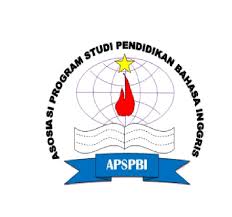“I am NNEST and I am proud”: Narrative Exploration of ESL Teacher Identity Construction
DOI:
https://doi.org/10.22515/elereviews.v3i1.6520Keywords:
identity negotiation, NNEST, language competence, community of practiceAbstract
The present narrative exploration investigates the factors affecting the language teacher identity negotiation of an international student working as an ESL teacher in an English language program in a research-integrated university. This study uses the qualitative method by drawing on the data from three stages of semi-structured interviews and researchers’ field notes and analyzing it through the perspective of BINF (Bilingual Identity Negotiation Framework). The result reveals the factors influencing the identity negotiation in her trajectory are language competence, educational background, and affirmative discourse at work. These factors led to her investment and participation in the community of practice, where she engaged and included herself in. Overall, this study presents how the ESL teacher identity is linked with the notions of individual agency and public discourse in the community of practice.
Downloads
References
Barkhuizen, G. (2016). A short story approach to analyzing teacher (imagined) identities over time. TESOL Quarterly, 50(3), 655-683.
Beauchamp, C., & Thomas, L. (2009). Understanding teacher identity: An overview of issues in the literature and implications for teacher education. Cambridge Journal of Education, 39(2), 175-189.
Crystal, D. (2007). English as a global language. Cambridge University Press.
Fan, F., & de Jong, E. J. (2019). Exploring professional identities of nonnative‐English‐speaking teachers in the United States: A narrative case study. TESOL Journal, 10(4), e495.
Fathelbab, H. (2011). NESTs (Native English-Speaking Teachers) & NNESTs (Non-Native English-Speaking Teachers): Competence or Nativeness? Issue One: Spring 2011, 64.
Fielding, R. (2016). Bilingual identity negotiation in practice: Teacher pedagogy and classroom interaction in a bilingual programme. The Language Learning Journal, 44(2), 152-168.
Golombek, P., & Klager, P. (2015). Play and imagination in developing language teacher identity-in-activity. Ilha do Desterro, 68, 17-32.
Holliday, A. (2006). Native-speakerism. ELT Journal, 60(4), 385-387.
Ilieva, R. (2010). Non-native English–speaking teachers’ negotiations of program discourses in their construction of professional identities within a TESOL program. Canadian Modern Language Review, 66(3), 343-369.
Liu, W. (2014). Living with a foreign tongue: An autobiographical narrative inquiry into identity in a foreign language. Alberta Journal of Educational Research, 60(2), 264-278.
Merriam, S. B., & Tisdell, E. J. (2016). Designing your study and selecting a sample. Qualitative research: A guide to design and implementation, 67(1), 73-104.
Nguyen, X. N. C. M., & Dao, P. (2019). Identity exploration and development in TESOL teacher education: A three‐dimensional space narrative inquiry perspective. TESOL Journal, 10(4), e492.
Paltridge, B., & Phakiti, A. (2015). Research methods in applied linguistics: A practical resource. Bloomsbury
Park, G. (2012). “I am never afraid of being recognized as an NNES”: One teacher’s journey in claiming and embracing her nonnative‐speaker identity. TESOL Quarterly, 46(1), 127-151.
Reis, D. S. (2011). Non-native English-speaking teachers (NNESTs) and professional legitimacy: A socio-cultural theoretical perspective on identity transformation.
Solano‐Campos, A. (2014). The making of an international educator: Transnationalism and non-nativeness in English teaching and learning. TESOL Journal, 5(3), 412-443.
Ting-Toomey, S. (2005). Identity negotiation theory: Crossing cultural boundaries. Theorizing about intercultural communication, 211-233.
Wolff, D., & De Costa, P. I. (2017). Expanding the language teacher identity landscape: An investigation of the emotions and strategies of a NNEST. The Modern Language Journal, 101(S1), 76-90.
Downloads
Published
How to Cite
Issue
Section
Citation Check
License
Copyright (c) 2023 Biaz Dea Nabilla, Dwi Budidarma Sutrisno

This work is licensed under a Creative Commons Attribution-NonCommercial 4.0 International License.
Authors retain copyright and grant the journal right of first publication with the work simultaneously licensed under a Creative Commons Attribution License that allows others to share the work with an acknowledgement of the work's authorship and initial publication in this journal.
This ejournal system and its contents are licensed under
a Creative Commons Attribution-NonCommercial 4.0 International License








